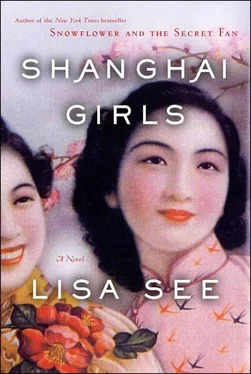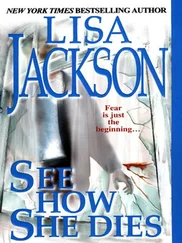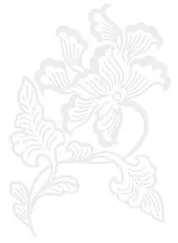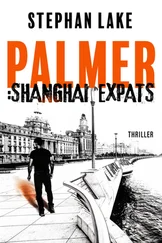“Grandpa Louie did that.”
“Exactly. And they’re looking for people who’ve tried-legally-to get their families out of China since it closed. They want to know where people’s loyalties lie-in China or in the United States?” I pause to see if she’s following me. Then I say “Our Chinese way of thinking doesn’t always apply here in America. We believe that being humble, respectful, and truthful will give us a better understanding of every situation, prevent others from being hurt, and result in an all-good end. That way of thinking could hurt us and many other people now.”
I take a deep breath and tell her something I was afraid to write to her. “You remember the Yee family?” Of course she does. She was great friends with the oldest girl, Hazel, and spent plenty of time with the other Yee kids at our union gatherings. “Mr. Yee is a paper son. He brought Mrs. Yee in through Winnipeg.”
“He’s a paper son?” Joy asks, surprised, maybe impressed.
“He decided to confess so he could stay here with his family, since the four children are American citizens. He told the INS he had brought in his wife using his false status. Now he’s an American citizen, but the INS has started deportation proceedings against Mrs. Yee, because she’s a paper wife. They still have two children at home who are not yet ten years old. What will they do without their mama? The INS wants to send her back to Canada. At least she won’t be going to China.”
“Maybe she’d be better off in China.”
When I hear this, I don’t know who’s talking-a silly parrot who must repeat everything this Joe has told her or from somewhere deep inside an eruption of her blood-mother’s deliberate childish stupidity.
“That’s Hazel’s mother you’re talking about! Is that how you would want them to feel if I was sent back to China?” I wait for an answer. When she doesn’t give me one, I get up, fold and put away the ironing board, and go check on Vern.
That night Sam carries Vern out to the couch so we can have dinner and watch Gunsmoke together. The evening’s hot, so dinner is cool and simple-just big wedges of watermelon made as cold as possible in our Frigidaire. We’re trying to follow what Miss Kitty is telling Matt Dillon when Joy starts up about the People’s Republic of China all over again. For nine months her absence felt like a hole in our family. We missed the sound of her voice and her beautiful face. But during that time we filled that hole with the television, with quiet conversation among the four of us, and with little projects that May and I did together. After Joy’s been home for two weeks, it’s like she takes up too much space with her opinions, her desire for attention, her need to tell us how wrong and backward we are, and the practiced way she has always divided her auntie and me, when all we want to do is find out if the marshal is ever going to kiss that Miss Kitty or not.
Sam, usually accepting of whatever comes out of his daughter’s mouth, finally can’t take any more and asks in Sze Yup in his quietest and calmest manner, “Are you ashamed of being Chinese? Because a proper Chinese daughter would be quiet and let her parents, auntie, and uncle watch their show.”
It is the absolute wrong question, because suddenly terrible things pour out of Joy’s mouth. She mocks our frugality: “Being Chinese? I don’t see why being Chinese means having to save gallon-size soy sauce containers to turn into waste bins.” She makes fun of me: “Only superstitious Chinese believe in the zodiac. Oh, Tiger this, Tiger that.” She hurts her aunt and uncle: “And what about arranged marriages? Look at Auntie May, married forever to someone who… who…” She hesitates as we all have from time to time until she settles on “never touches her with love or affection.” Her face rumples into an expression of distaste. “And look at how you all live together.”
Listening to her, I hear May and me twenty years ago. I’m sad for how we treated our parents, but when Joy starts hurting her father…
“And if Chinese means being like you… The food you cook in the café stinks your clothes. Your customers insult you. And the dishes you make are too greasy, too salty, and have too much MSG.”
These words hit Sam hard. Unlike May and me, he’s loved Joy without regret, without conditions, without once holding back his heart.
“Take a look in the mirror,” he says slowly. “What do you think you are? What do you think the lo fan see when they look at you? You’re nothing but a piece of jook sing- hollow bamboo.”
“Dad, you should speak to me in English. You’ve lived here for almost twenty years. Can’t you speak it yet?” She blinks a few times and then says, “You’re just so… so… so FOB.”
The silence in the living room is cruel and deep. Realizing what she’s done, she tilts her head, ruffles her pixie cut, and then smiles in what I immediately recognize as May’s from long ago. It’s a smile that says, I’m naughty, I’m disobedient, but you can’t help but love me . I see, even if Sam can’t, that all this has less to do with Mao, Chiang Kai-shek, Korea, the FBI, or how we’ve chosen to live our lives these last twenty years than it does with how our daughter feels about her family. May and I once thought Mama and Baba were old-fashioned, but Joy is embarrassed by and ashamed of us.
“Sometimes you think you have all of tomorrow ahead of you,” Mama often said. “When the sun is shining, think of the time it won’t be, because even when you’re sitting in your house with the doors shut, misfortune can fall from above.” I ignored her when she was alive and I didn’t pay enough attention as I got older, but after all these years I have to accept that Mama’s foresight is what saved us. Without her hidden savings, we all would have died right there in Shanghai. Some deep instinct motivated her and kept her going when May and I were nearly paralyzed with fear. She was like a gazelle who, under hopeless circumstances, still tried to save her calves from the lion. I know I have to protect my daughter-from herself, from this Joe boy and his romantic ideas about Red China, from making the kinds of mistakes that so dampened May’s and my choices-but I don’t know how.
I’M GOING TO Pearl ’s to pick up takeout for Vern when I see the FBI agent stop Uncle Charley on the sidewalk. I pass the two men-with Uncle Charley ignoring me as though he doesn’t know me-and enter the café, leaving the door wide open. Inside, Sam and our workers go about their business while listening as hard as they can to what floats through the door. May comes out of her office, and we linger by the counter, pretending to talk but watching and listening to everything.
“So, Charley, you went back to China,” the agent says suddenly in Sze Yup in a voice so loud I look at my sister in surprise. It’s as though he wants not only to have us hear what he’s saying but also to let us know that he’s fluent in the dialect of our district.
“I went to China,” Uncle Charley admits. We can barely hear him, his voice quavers so. “I lost my savings, and I came back here.”
“We hear you’ve said bad things about Chiang Kai-shek.”
“I haven’t.”
“People say you have.”
“What people?”
The agent doesn’t answer that question. Instead he asks, “Isn’t it true you blame Chiang Kai-shek for losing your money?”
Charley scratches at his rash-covered neck and sucks on his lips.
The agent waits and then asks, “Where are your papers?”
Uncle Charley glances through the plate-glass window, looking for help, for encouragement or possible escape.
The agent-a big lo fan with sandy-colored hair and freckles on his nose and cheeks-smiles and says, “Yes, let’s go inside. I’d like to meet your family .”
Читать дальше












